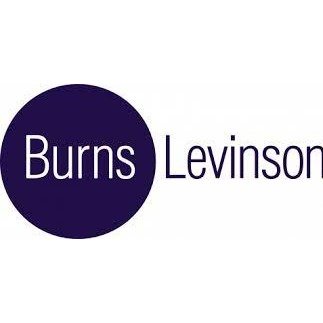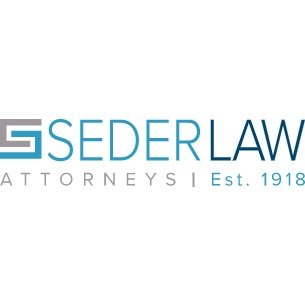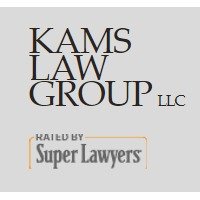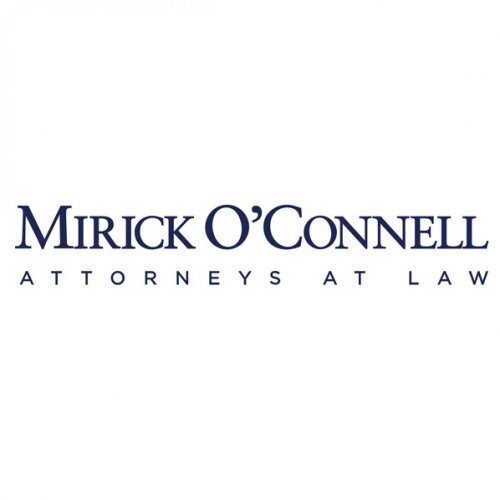Best FDA Law Lawyers in Massachusetts
Share your needs with us, get contacted by law firms.
Free. Takes 2 min.
Or refine your search by selecting a city:
List of the best lawyers in Massachusetts, United States
About FDA Law in Massachusetts, United States
FDA Law refers to the regulations and legal frameworks set forth by the United States Food and Drug Administration (FDA), which ensures the safety and effectiveness of food, drugs, medical devices, cosmetics, and other health-related products. In Massachusetts, FDA regulations operate alongside state-specific rules that apply to manufacturing, distributing, and marketing these products. Businesses and individuals involved in the development or sale of FDA-regulated products must comply with both federal and Massachusetts laws, which can sometimes be complex or divergent.
Why You May Need a Lawyer
People and businesses in Massachusetts may require legal help with FDA Law for various reasons. Common situations include:
- Navigating the process to bring a new drug, medical device, or dietary supplement to market
- Responding to FDA inspections or warning letters
- Complying with both state and federal requirements for labeling, packaging, and advertising products
- Dealing with product recalls or safety concerns
- Addressing import and export issues for FDA-regulated goods
- Facing enforcement actions, fines, or penalties from the FDA or Massachusetts authorities
- Ensuring proper Good Manufacturing Practices (GMP) in facilities
- Defending against allegations of adulteration or misbranding
- Seeking advice on clinical trial requirements and research regulations
- Handling disputes involving product liability or consumer safety
An experienced FDA Law attorney can help navigate these complex legal requirements, protect your interests, and minimize the risk of noncompliance.
Local Laws Overview
Massachusetts enforces several statutes and regulations that supplement federal FDA rules. The Massachusetts Department of Public Health (DPH) oversees many aspects of drug, food, and medical device safety within the state. Key local considerations include:
- The Massachusetts Food and Drugs Laws, which outline how food, drugs, and cosmetics are regulated within the state
- Supplemental labeling and consumer protection requirements that apply in Massachusetts, which can differ from federal rules
- Specific rules regarding cannabis products, nutritional supplements, and certain “compounded” pharmaceuticals
- State licensing requirements for pharmacies, medical device manufacturers, and other health-related businesses
- Enforcement actions and penalties can occur at both the state and federal level, and Massachusetts authorities often share information and coordinate with the FDA
Understanding the intersection between federal FDA regulations and Massachusetts-specific laws is crucial for legal compliance, especially if your business operates across state lines or deals with high-risk products.
Frequently Asked Questions
What products are regulated by the FDA in Massachusetts?
The FDA regulates food, drugs, medical devices, cosmetics, dietary supplements, tobacco products, and some electronic products. These regulations apply to anyone manufacturing, distributing, or selling such products within Massachusetts.
Do I need FDA approval to sell a new dietary supplement in Massachusetts?
Typically, dietary supplements do not require pre-market FDA approval, but you must follow both federal and Massachusetts guidelines for labeling, safety, and manufacturing. Some ingredients may trigger special requirements.
What should I do if I receive an FDA warning letter?
Respond promptly and carefully. An experienced FDA Law attorney can help you understand the issues raised, draft an effective response, and implement necessary corrective actions.
How do Massachusetts laws differ from federal FDA regulations?
Massachusetts may have additional or stricter rules for labeling, cannabis products, pharmacy operations, and consumer protections. State law can complement or, in some areas, go beyond federal requirements.
Are cannabis products in Massachusetts subject to FDA regulations?
The FDA regulates aspects of cannabis products, particularly those containing CBD or advertised with health claims, but Massachusetts also has its own licensing and labeling rules for marijuana and hemp products.
How are food safety standards enforced in Massachusetts?
Both the FDA and the Massachusetts Department of Public Health oversee food safety. State inspectors work in conjunction with federal authorities to ensure adherence to health and safety standards.
What is Good Manufacturing Practice (GMP) and is it required in Massachusetts?
GMP refers to a set of regulations ensuring products are produced consistently and safely. Both FDA regulations and Massachusetts law require compliance with GMP for drugs, foods, and some dietary supplements.
Can the state of Massachusetts conduct its own inspections apart from the FDA?
Yes. Massachusetts health authorities can conduct inspections, issue penalties, and enforce state-specific rules in addition to federal FDA oversight.
What legal risks do I face if my product is considered misbranded or adulterated?
You may face recalls, fines, or even criminal penalties from both the FDA and Massachusetts authorities. Legal guidance is crucial to address such allegations and prevent future issues.
Do I need a lawyer for FDA compliance, or can I handle it myself?
While some compliance steps can be managed internally, navigating complex or high-risk issues often requires experienced legal counsel to avoid costly mistakes and ensure effective resolution of any regulatory problems.
Additional Resources
Several resources are available to those seeking guidance on FDA Law in Massachusetts:
- Massachusetts Department of Public Health (DPH) - Oversees state-specific food and drug safety regulations.
- United States Food and Drug Administration (FDA) - The primary federal agency regulating foods, drugs, medical devices, and more.
- Massachusetts Department of Agricultural Resources - Manages regulations related to agricultural products and dietary supplements.
- Local law libraries and business associations - Offer access to legal research tools and educational programs.
- Nonprofit health advocacy organizations - Provide information and support for consumers and health businesses.
Next Steps
If you need legal assistance in the field of FDA Law in Massachusetts, consider the following actions:
- Gather any relevant documentation, such as inspection reports, warning letters, product labels, or correspondence with regulators
- Research and identify qualified FDA Law attorneys or law firms experienced with both federal and Massachusetts regulations
- Schedule a consultation to discuss your case, compliance needs, or any immediate legal concerns
- Stay proactive with ongoing compliance and training to reduce legal risk
- Consult additional resources or industry groups for guidance and updates on evolving laws
A skilled attorney can help you understand your obligations, respond to regulatory challenges, and establish compliance strategies tailored to your business or personal needs in Massachusetts.
Lawzana helps you find the best lawyers and law firms in Massachusetts through a curated and pre-screened list of qualified legal professionals. Our platform offers rankings and detailed profiles of attorneys and law firms, allowing you to compare based on practice areas, including FDA Law, experience, and client feedback.
Each profile includes a description of the firm's areas of practice, client reviews, team members and partners, year of establishment, spoken languages, office locations, contact information, social media presence, and any published articles or resources. Most firms on our platform speak English and are experienced in both local and international legal matters.
Get a quote from top-rated law firms in Massachusetts, United States — quickly, securely, and without unnecessary hassle.
Disclaimer:
The information provided on this page is for general informational purposes only and does not constitute legal advice. While we strive to ensure the accuracy and relevance of the content, legal information may change over time, and interpretations of the law can vary. You should always consult with a qualified legal professional for advice specific to your situation.
We disclaim all liability for actions taken or not taken based on the content of this page. If you believe any information is incorrect or outdated, please contact us, and we will review and update it where appropriate.
Browse fda law law firms by city in Massachusetts
Refine your search by selecting a city.















